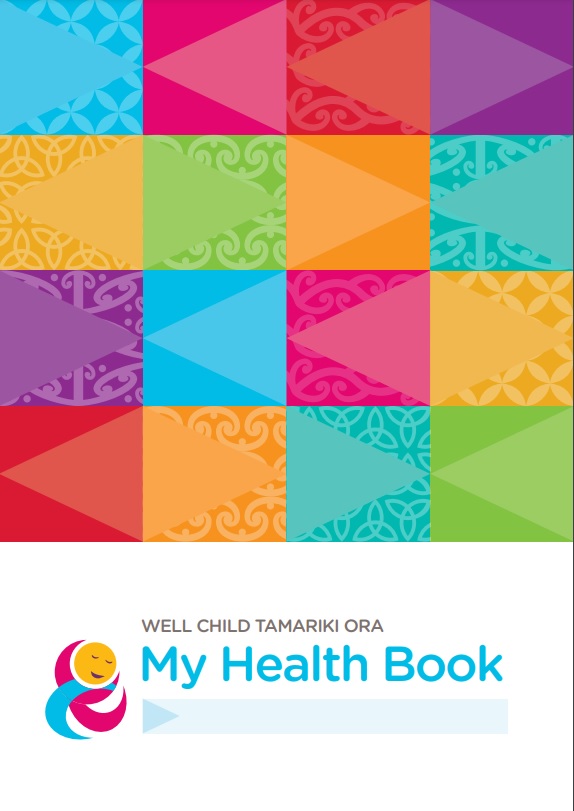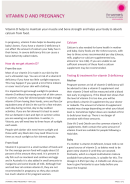You can now add Healthify as a preferred source on Google. Click here to see us when you search Google.
Rickets | Mate kōiwi takarepa
Key points about rickets
- Rickets occurs in growing bones, so mostly affects infants and young children. In Aotearoa New Zealand, rickets is usually diagnosed between three and 18 months of age.
- Rickets can cause increased risk of bone fractures, bone pain, poor growth and bone deformities, eg, bowed legs and thickening of the ankles, knees and wrists.
- Rickets is usually due to a lack of vitamin D, calcium or phosphorus.
- About 90% of vitamin D comes from skin exposure to ultraviolet B (UVB) light from the sun and 10% from diet.
- Vitamin D or calcium supplements often correct bone problems associated with rickets.
- Rarely, children can be born with a genetic (inherited) form of rickets.

Rickets usually occurs due to a lack of vitamin D. Vitamin D helps your body to absorb calcium and phosphorus, which are needed to build strong bones. Babies, children, teenagers, pregnant women or breastfeeding mothers are at higher risk of vitamin D deficiency, as the need for vitamin D is higher in these groups.
Babies and children are also at higher risk of vitamin D deficiency if they:
- have dark skin or a condition that prevents sun exposure
- are exclusively breastfed (having breastmilk only) for an extended period and the introduction of solid food is delayed
- are born to a mother who has low vitamin D levels or has a sibling with low vitamin D levels
- wear clothing that covers their skin most of the time for cultural or religious reasons
- live in southern regions of Aotearoa New Zealand where there is less sun in winter and spring than in other parts of the country
- have a condition that prevents or impairs absorption of vitamin D through the gut, such as Crohn’s disease or coeliac disease
- have a diet that is low in vitamin D (eg, vegetarian).
Rare forms of rickets can also occur in some inherited (genetic) disorders or kidney problems.
Rickets softens the growing tissue at the end of your bones (growth plates). This can cause:
- bowed legs or ‘knock-knees’ where the knees tilt inwards while the ankles are apart – but it is normal to have some bowing under the age of 2 years and some children have knock knees until the age of 4
- swelling of wrists, ankles and knee
- pain in your spine, pelvis and legs
- teeth to emerge from your gums later and problems with tooth enamel
- softening of your skull bones, slow closure of soft spots (fontanelles) on the skull and a prominent forehead
- the chest wall (breastbone) to stick out
- bending (curvature) of your spine, although this is uncommon.
Rickets can also cause poor growth, delayed motor skills and muscle weakness. Children with rickets are more likely to fracture their bones.
A diagnosis of rickets is usually confirmed through:
- a physical exam by your healthcare professional where they will gently press on your child’s bones checking for pain or tenderness
- blood tests to check vitamin D, calcium and phosphate levels
- x-rays of the affected bones.
Most cases of rickets can be treated with vitamin D supplements. Your child may also need extra calcium and phosphorous as well. This can be done by increasing the amount of calcium-rich food your child eats or by taking supplements. Improvements can be seen on an x-ray within days of starting supplements.
If your child’s rickets are treated when they are young, there is a good chance any bone (skeletal) problems will disappear as your child matures. In some instances, your healthcare professional may suggest treatment to correct any bone problems.
Your healthcare professional will refer you to a renal (kidney) or endocrinology (hormone) specialist if your child’s rickets is caused by an inherited (genetic) disease or kidney problem.
- Does my child need a vitamin D or calcium supplement?
- Will my child have bone problems later in life?
- What can I do to make sure my child gets enough vitamin D safely?
About 90% of vitamin D comes from skin exposure to ultraviolet B (UVB) light from the sun and 10% from diet. Babies and young children need extra protection from the sun, particularly from UV rays. However sensible sun exposure can help prevent vitamin D deficiency.
Vitamin D is also found in small quantities in foods such as eggs, liver, fatty fish (North Sea salmon, herring and mackerel) and portobello and shiitake mushrooms (which make their vitamin D from sunlight).
Some foods may also have vitamin D added. These include:
- margarine and fat spreads
- some reduced-fat dairy products (eg, milk, dried milk and yoghurt)
- plant-based dairy substitute (eg, soy drinks).
The following links provide further information about rickets. Be aware that websites from other countries may have information that differs from New Zealand recommendations.
Rickets(external link) Better Health Channel, Australia
Rickets and osteomalacia(external link) NHS, UK
Resources
My Health Book(external link) HealthEd, NZ, 2010
Vitamin D and Pregnancy(external link) The Women's, Australia, 2021
References
- Vitamin D deficiency – investigation and management(external link) Starship Clinical Guidelines, NZ, 2021
- Companion statement on vitamin D and sun exposure in pregnancy and infancy in NZ(external link) Health New Zealand | Te Whatu Ora, 2020
Clinical pathways
Information from Auckland Region Community HealthPathways(external link), accessed in September 2021:
Investigations:
- 25-hydroxy vitamin D [25(OH)D] is the best marker of body stores. Only test children with multiple risk factors or if treatment compliance is suspect
- Calcium, phosphate, albumin, alkaline phosphatase (ALP), creatinine
- FBC, iron studies, ferritin – iron deficiency often co-exists with vitamin D deficiency
- Only X-ray if clinical suspicion of rickets
- Do not order parathyroid hormone (PTH). If necessary, this will be arranged in secondary care.
Clinical resources
25-hydroxy vitamin D testing for funded requests(external link) Labtests Pathology, NZ, 2019
Vitamin D deficiency – investigation and management(external link) Starship Clinical Guidelines, NZ, 2021
Quick tips – vitamin D and children(external link) BMJ Learning, November 2018
Consensus statement on vitamin D and sun exposure in NZ(external link) Ministry of Health and Cancer Society of NZ, 2012
Vitamin D and calcium supplementation in primary care – an update(external link) BPAC, NZ, 2016
Apps
Coeliac disease apps
Physiotherapy and exercise apps
Joint and bone health apps
Brochures

HealthEd, NZ, 2010
Credits: Healthify editorial team. Healthify is brought to you by Health Navigator Charitable Trust.
Reviewed by: Dr Sharon Leitch, GP and Senior Lecturer, University of Otago
Last reviewed:
Page last updated:






